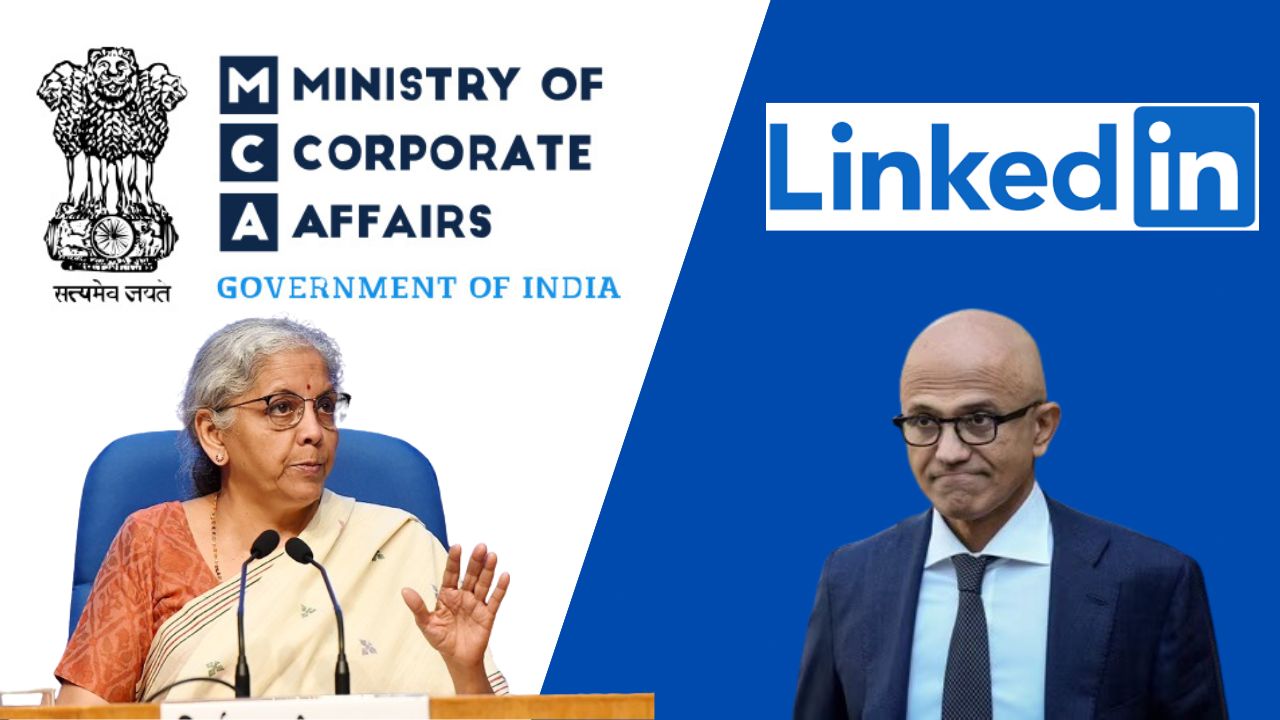Understanding Compliance: Lessons from the LinkedIn Case
What Every Company Needs to Know About Beneficial Ownership Compliance
In recent times, regulatory compliance has become a critical aspect of corporate governance. A recent order involving LinkedIn Technology Information Private Limited highlights the importance of understanding and adhering to legal provisions related to beneficial ownership. Let’s break down what happened, the relevant legal requirements, and how your company can stay compliant.
What Happened with LinkedIn?
The Ministry of Corporate Affairs (MCA) in India recently issued an order against LinkedIn Technology Information Private Limited for failing to comply with certain provisions of the Companies Act, 2013. Specifically, LinkedIn was found in violation of Sections 89 and 90, which deal with the declaration of beneficial ownership.
The following directors and officers were involved:
• Satya Nadella: Chairman and CEO of Microsoft Corporation, indirectly involved through LinkedIn’s ownership structure.
• Ryan Roslansky: CEO of LinkedIn Corporation, indirectly connected through control mechanisms.
• Michelle Leung: Director of LinkedIn India from 2017 to 2021.
• Henry Fong: Current director, involved in multiple LinkedIn entities worldwide.
• Ashutosh Gupta: Whole-time director, also served as country manager for LinkedIn India.
• Mark Leonard Nadres Legaspi: Resigned director, formerly Assistant Secretary at LinkedIn Corporation.
These directors were required to file necessary disclosures which they failed to do, leading to the imposition of penalties.
Key Issues:
- Incorrect Declarations: LinkedIn filed an incorrect declaration about who held the beneficial interest in the company’s shares. This means they reported the wrong information about who really owned the shares.
- Late Filings: They also failed to submit the necessary forms within the required time frame.
- Non-Disclosure of Significant Beneficial Ownership: LinkedIn did not properly disclose the individuals or entities that held significant ownership in the company.
Legal Provisions Explained
- Section 89 – Declaration of Beneficial Interest:
Section 89 of the Companies Act, 2013, requires the disclosure of beneficial interests in shares. Here’s what it entails:
- Beneficial Interest: This term refers to the right to enjoy the benefits of ownership even if the shares are not registered in your name. For example, if person A holds shares in person B’s name, person A is the beneficial owner.
- Declaration by Registered Owner: If a registered shareholder (the person whose name is on the share certificate) does not hold the beneficial interest, they must file a declaration (Form MGT-4) with the company stating the details of the beneficial owner.
- Declaration by Beneficial Owner: The beneficial owner must also file a declaration (Form MGT-5) with the company, declaring their interest in the shares.
- Company’s Responsibility: Upon receiving these declarations, the company must file a return (Form MGT-6) with the Registrar of Companies within 30 days, indicating the beneficial ownership.
Failure to comply with these requirements can result in penalties for both the company and the individuals involved.
- Section 90 – Register of Significant Beneficial Owners (SBO):
Section 90 aims to ensure transparency in the ownership of companies by mandating the declaration of significant beneficial ownership:
- Significant Beneficial Owner: A significant beneficial owner is defined as an individual who, directly or indirectly, holds at least 10% of the shares or voting rights, or has significant influence or control over the company.
- Declaration by SBO: Every significant beneficial owner must submit a declaration (Form BEN-1) to the company, detailing their ownership.
- Company’s Obligation: The company must maintain a register of significant beneficial owners and file the details with the Registrar of Companies (Form BEN-2).
- Continuous Monitoring: Companies are required to keep this register up-to-date and notify the Registrar of any changes in ownership.
Failure to comply with Section 90 can lead to significant penalties and legal consequences for both the company and the significant beneficial owners.
Steps to Ensure Compliance
To avoid the pitfalls experienced by LinkedIn, here are some practical steps your company can take:
- Establish Clear Ownership Records:
- Maintain accurate and up-to-date records of all shareholders and beneficial owners. Ensure that any changes are promptly recorded and reported.
- Regular Audits:
- Conduct regular internal audits to ensure compliance with statutory requirements. This helps identify any discrepancies early and allows for timely correction.
- Timely Filings:
- Be vigilant about filing deadlines. Ensure that all required forms and declarations are submitted within the stipulated time frames to avoid penalties.
- Compliance Training:
- Train your team on the legal requirements related to beneficial ownership and other regulatory compliances. Awareness and understanding are key to maintaining compliance.
- Engage Legal Expertise:
- Consider consulting with legal experts who can provide guidance on compliance issues and help navigate complex regulatory landscapes.
- Transparent Communication:
- Foster a culture of transparency within your organization. Encourage employees and stakeholders to report any issues or concerns related to ownership and compliance.
Conclusion
The LinkedIn case serves as a stark reminder of the importance of regulatory compliance. By understanding the legal requirements and implementing robust compliance practices, companies can avoid penalties and ensure smooth operations. Staying compliant not only protects your company from legal repercussions but also builds trust with stakeholders and enhances your corporate reputation.

